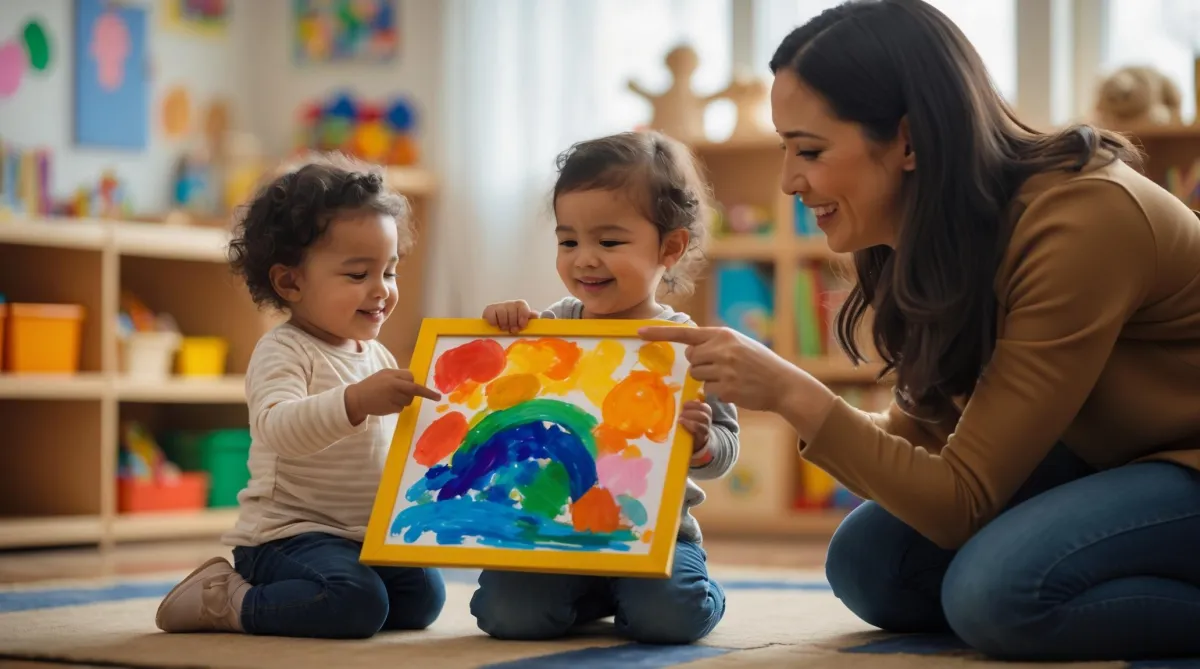
Why You Should Never Say “Good Job” to Your Child

Why You Should Never Say “Good Job” to Your Child
Rethinking Praise for Deeper Connection and Growth
By Kidazzle Childcare Center
Discover why saying “good job” may limit a child’s growth—and what to say instead to build confidence, motivation, and emotional resilience.
At Kidazzle, we believe that every word spoken to a child is an opportunity—to nurture confidence, encourage resilience, and spark curiosity. One of the most common phrases we hear in parenting and education is:
“Good job!”
It sounds kind. It feels encouraging. And yes—it’s said with love.
But what if we told you that saying “good job” too often might actually do more harm than good?
Let’s explore why this phrase might be worth rethinking—and how you can replace it with something even more powerful.
The Problem with “Good Job”
“Good job” rolls off the tongue so easily. We say it when children draw, clean up, share a toy, or try something new. But here’s what often goes unnoticed:
1. It’s Vague
Children don’t always know what they did well. Did they pick a great color? Did they try hard? Did they follow a rule? The praise becomes a pat on the head instead of meaningful feedback.
2. It Shifts Motivation
When children hear “good job” repeatedly, they may start to do things for the praise—not for the experience, the effort, or the joy of doing.
3. It Creates Performance Pressure
A child who constantly hears “good job” may start to fear messing up. They may avoid hard things or new challenges because they’re afraid of not being good enough.
4. It Reinforces External Validation
Instead of trusting their own judgment or enjoying their own process, children begin to look to adults to tell them if they did well.

What to Say Instead
Here at Kidazzle, we focus on intentional praise—words that build character, self-awareness, and confidence from the inside out.
Here are our favorite alternatives to “Good job”:
1. Describe What You See
“You used so many colors in your picture!”
“You stacked all those blocks really high.”
Why it works: Descriptive language helps children become aware of their own effort and choices.
2. Acknowledge the Effort
“You kept trying, even when the tower fell.”
“That puzzle was hard, but you didn’t give up!”
Why it works: This encourages a growth mindset and builds grit.
3. Ask Thoughtful Questions
“What part did you enjoy the most?”
“How did you decide to use that shape?”
Why it works: Asking questions deepens learning and shows that you care about their thinking—not just the outcome.
4. Affirm Kindness and Character
“It was thoughtful of you to help your friend.”
“You were very patient while waiting.”
Why it works: This helps children build a strong internal sense of values.
5. Just Be Present
Sometimes, your quiet presence is enough.
A smile. A nod. A shared look of “I see you.”
No praise needed—just connection.
In the Kidazzle Way…
We don’t praise to please—we praise to empower.
Every child deserves more than “good job”—they deserve to be truly seen, heard, and understood.
So the next time your child proudly shows you a painting, a block tower, or a kind act… pause. Take it in. And speak with intention.
Because your words are shaping the way they see themselves.
Want More Gentle Parenting Insights?
Follow Kidazzle Childcare Center on [Instagram/Facebook/Website]
For tips, activities, and parenting support that grows with your family.
Kidazzle Childcare — Where Connection Begins.